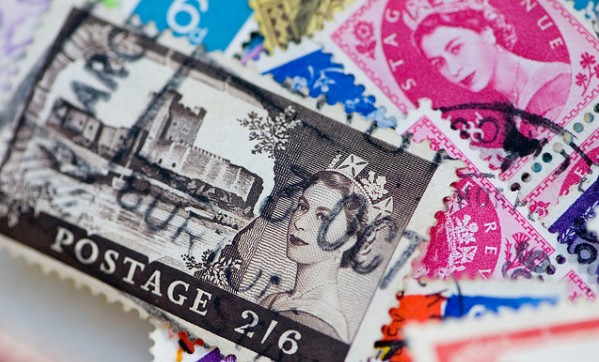Going against the grain (but not the watermark) as of April 1, Denmark has introduced a bleeding-edge tech component to its postal service. Users can now text the post office in order to purchase a digital stamp. The “stamp” itself is a code, texted back post-payment, that the user hand-writes on the envelope, where it serves as proxy. This isn’t meant to be a novelty, nor is it merely just the latest kinda-cool app: It’s actually a devious plot to entice a younger generation into writing letters.
Letter-writing was already a dying art in the pre-millennium, but there’s no doubt that text/email/mobility has had a drastic impact on communication, not to mention attention spans. Facebook and Twitter inadvertently take this attrition a step further, oftentimes channelling narcissism into a steady stream of banal updates.
Musician John Mayer perhaps explained it best when he walked away from 3.7 million Twitter followers in the fall of 2010, writing on his blog, “It occurred to me that since the invocation of Twitter, nobody who has participated in it has created any lasting art [with it].”
It’s a valid-enough point (and it immediately makes one curious as to what might constitute “lasting Twitter art”). Writing letters might seem not just anachronistic, but outright archaic. Still, when we consider the thoughtfulness literary correspondents once invested in their choices of wording and phraseology — without needing to be a Hemingway, Twain or Woolf — we wonder if maybe we exchanged cursive for #cursing a bit prematurely. Not everything left in the past should languish, even if technological advance seems to dictate such.
History will teach us nothing, it’s been said. But what if we decided to try to learn? What other areas of modern life could benefit from “retroscoping”?
The animated TV show Archer is set in a world brimming in anachronisms that underscore the human element to solving domestic and international threats. It’s set on a parallel Earth where the Cold War never ended, the ’60s are always in fashion, and old-school assassination tactics are … oddly effective.
Back here in the real world, the military-industrial complex has necessitated the employment of fancy jet fighters and other technologies in order to solve conflicts via, primarily, “mine is bigger” pre-emption; unfortunately, the twin arts of espionage and diplomacy often seem to have been lost along the way.
Instead of the collateral damage that comes with inaccurate air strikes, the loss of life that a ground war entails, or the potential for political undertow that comes with supporting opposition groups (see the Afghanistan situation, where the U.S.-backed Mujahideen laid the groundwork for the emergence of the Taliban), are there not more surgical options to rid us of dictators like, oh, say, Muammar Gaddafi? Archer espouses assassination via sniper teams and black ops — waitaminnit, don’t democracy-loving citizens in the real world (secretly) espouse that, too?
And that’s just cartoons. In a similar vein to John Mayer rejecting Twitter, our culture’s love affair with reality television has caused its own kind of erosion. Popularity-contest shows promise stardom through mere audience exposure — we’re looking at you, American Idol (not at you, Canadian Idol). But it’s overnight-success stardom, every bit as fictitious as Archer, albeit without Archer’s inner practicality. No matter how you (try to) slice it, manufactured TV pop stars lack the kind of depth and soul — and backbone, and sheer stamina — that can only be earned through years of gigging and recording.
Letter-writing is a smaller-term version of the same. (Thought we forgot about letters, didn’t you?) It forces individuals to take their time — collect their thoughts, put more effort into their messaging.
Denmark’s digital stamp is an interesting innovation technologically, but will it really catalyze a resurgence of snail mail in the youth demographic? Probably not. Still, points for trying.
And, yeah, I’m probably not going to write a letter any time soon, myself. See you on the interwebs!
——————–
Image courtesy of kfisto.



Wow. This is an impressive pile of disconnected rambling horse-shit. How did this make it through the editing process without being flagged as the self-indulgent mushroom-induced nonsense that it is? Did this guy see the editor kill somebody? Oh wait, it’s an online newsletter. WHAT EDITOR?
Can we get an paid professional writer up in this joint?